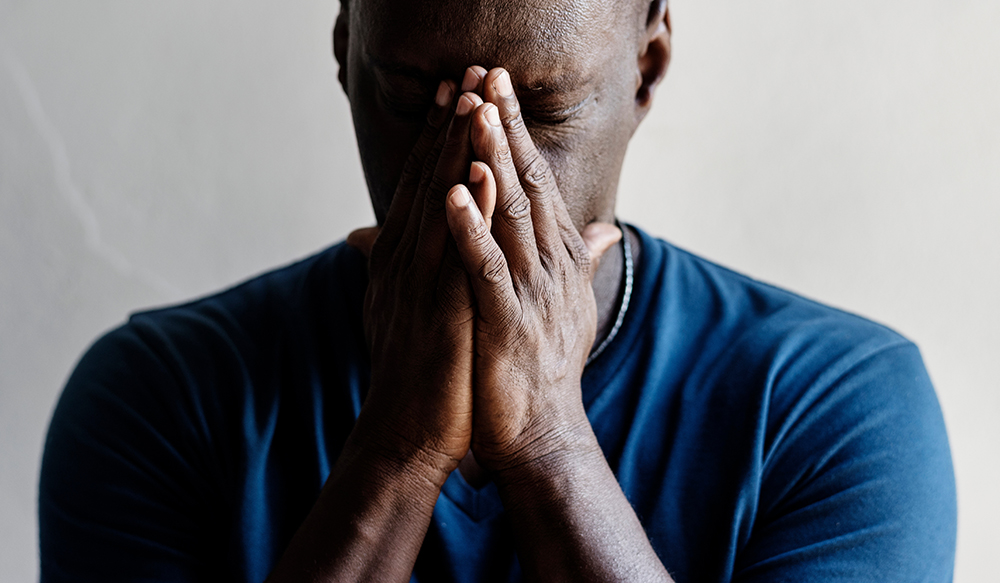Many people use alcohol to calm down and relax after a long, stressful day. Unfortunately, this habit can ultimately trigger or exacerbate anxiety, leading to a troubling cycle of dependence. The phenomenon of alcohol anxiety, including what’s colloquially known as “hangxiety,” highlights the complex overlap between alcohol misuse and substance disorders.
Hope Lodge helps people learn to address co-occurring alcohol dependence and anxiety with comprehensive treatment options. Let’s explore the relationship between alcohol and anxiety, the risks of self-medicating with alcohol, and the solutions available for addressing a dual diagnosis.
The Connection Between Alcohol and Anxiety
As a central nervous system depressant, alcohol slows down brain activity, creating short-lived feelings of relaxation, calmness, and even euphoria. These effects make it an attractive option for people experiencing anxiety. However, the soothing sensation alcohol provides is temporary. Over time, it can worsen your anxiety symptoms instead of relieving them.
- Rebound anxiety: When you stop drinking, you may experience a boomerang effect that can lead to more severe and frequent episodes of anxiety over time.
- Increased tolerance and dependence: People who keep using alcohol may develop a tolerance, requiring larger quantities to achieve the same calming effect. This cycle can lead to physical and psychological dependency that causes you to feel ill when you are sober, thus perpetuating the pattern.
- Long-term impact on mental health: Over time, alcohol use can worsen mental health, as it disrupts the brain’s natural production of chemicals associated with mood regulation. The result can be a persistent anxiety disorder that becomes increasingly difficult to manage.
- Physical health complications: Chronic alcohol use can lead to a range of physical illnesses, including liver disease, heart problems, a compromised immune system, and cognitive decline. Your body will also become less effective at producing and regulating essential neurotransmitters, further impacting your mental health.
- Impact on daily life: Using alcohol to manage anxiety can interfere with your daily responsibilities and relationships. You may struggle to perform at work or school, experience conflicts with loved ones, and face financial or legal issues due to your drinking habits.
What Is “Hangxiety”?
Hangxiety is a term coined to describe the heightened anxiety some people feel after an episode of heavy drinking, particularly during a hangover. After the initial relaxing effects of alcohol fade, the brain tries to rebalance itself, often leading to:
- Racing heart
- Sweating
- Irritability
- Panic and worry
- Feelings of guilt or dread
The experience can be incredibly uncomfortable, and for some, it serves as an incentive to drink again, reinforcing the self-destructive behaviors and making the problems more pronounced.
When Alcohol Overlaps With Anxiety Disorders
If you simultaneously have a substance use disorder and a mental illness, medical professionals call that intersection a dual diagnosis. This combination can create unique challenges, as both conditions often feed into each other.
Managing a dual diagnosis is complex because addressing only one condition often triggers a relapse. For example, if you receive stand-alone anxiety treatment without addressing alcohol abuse, you may return to drinking to manage lingering symptoms. Conversely, if you only get help for alcohol dependence, untreated anxiety may cause you to fall back into self-destructive habits.
Comprehensive dual-diagnosis treatment programs target both components of a co-occurring disorder at their root. This integrated approach is essential to breaking the cycle and achieving long-term recovery.
Treatment Options for Alcohol Anxiety and Dual Diagnosis
Hope Lodge offers integrative treatments designed to help clients overcome substance use disorder, anxiety, depression, and trauma, providing a holistic approach. Our Lake Arrowhead and Costa Mesa residential communities are small by design, ensuring you receive personalized attention and compassionate care. We understand the complicated relationship between alcohol and anxiety, and our goal is to teach you healthy coping mechanisms that enable you to achieve lasting sobriety. Reach out to us today to put yourself on a path to healing and reclaim control over your life.

